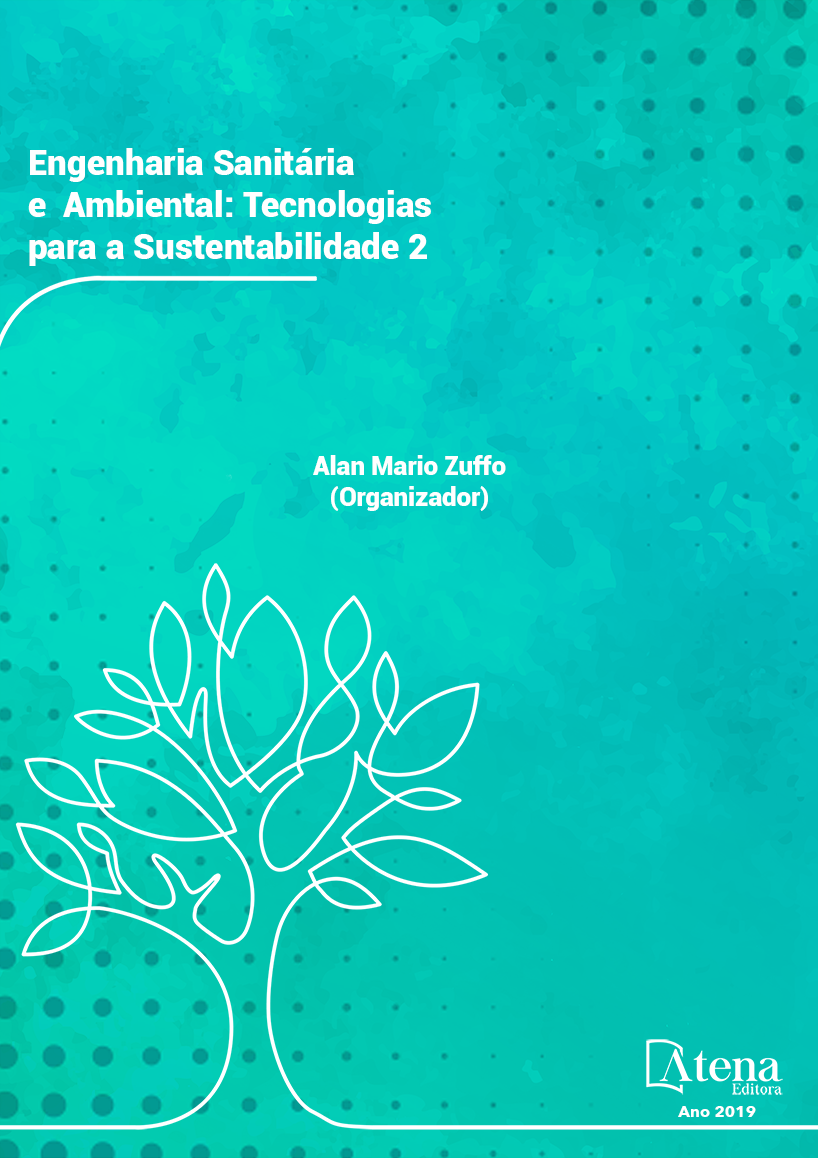
BACIA DE EVAPOTRANSPIRAÇÃO: UMA ALTERNATIVA VIÁVEL PARA TRATAMENTO DE EFLUENTES EM ZONAS RURAIS
No Brasil os investimentos no setor
de saneamento, comoo tratamento de esgoto,
ocorreram mais especificamente entre as
décadas de 1970 e 1980. Porém, o país ainda
apresenta grande insuficiência no tratamento
da água por meio da rede de esgoto e na coleta
do mesmo, principalmente nas áreas rurais de
agricultura familiar, que afeta diretamente a
relação entre saúde e saneamento. Essa falha
na implantação de sistema de esgoto age no
contexto do processo de desenvolvimento social,
pois ocorre contaminação dos rios, lençóis
freáticos, nascentes e lagos, produz odores
desagradáveis com presença de insetos e pode
haver desmoronamentos laterais com riscos
acidentais. Torna-se, assim, indispensável a
criação de tecnologias alternativas para a
recuperação dessas questões no campo,
essencialmente em patrimônios agrícolas
que se encontram próximos às margens de
rios e nascentes. Atualmente, o país tem sido
mais atencioso com as questões ambientais
investindo em projetos sustentáveis, pois os
sistemas convencionais de tratamento de
esgotos provocam impactos ao meio ambiente
e à saúde das populações, pelo lançamento
desses resíduos parcialmente tratados em
corpos de água. Desta forma, este trabalho
aborda um método alternativo sustentável, que
visa a redução da poluição e a contaminação
das águas, promovendo a segregação das
águas negras (provenientes do vaso sanitário)
das águas cinzas (não contaminadas com
fezes),realizando o tratamento simplificado
e descentralizado dos diferentes tipos de
efluentes domésticos, possibilitando o reuso
de água e nutrientes contidos no esgoto. Os
nutrientes deixam o sistema incorporando-se à
biomassa das plantas e a água é eliminada por evapotranspiração.
BACIA DE EVAPOTRANSPIRAÇÃO: UMA ALTERNATIVA VIÁVEL PARA TRATAMENTO DE EFLUENTES EM ZONAS RURAIS
-
DOI: 10.22533/at.ed.50019110418
-
Palavras-chave: saneamento básico, tratamentos de esgoto, sustentabilidade
-
Keywords: basicsanitation, sewagetreatment, sustainability
-
Abstract:
In Brazil, investments in the sanitation sector, such as sewage treatment,
occurred mainly between the 70’s and 80’s. However, the country still presents great
insufficiency in the treatment of water through the sewage systems and they collection,
especially in rural areas of family farming, which directly affects the relationship between
health and sanitation. This failure in the implementation of sewage system acts in the
context of the process of social development, as it occurs rivers contamination, water
table, nascents and lakes, produces unpleasant odors with presence of insects and
may have landslip with accidental collapses. It is therefore essential to create energy
alternatives for the recovery of issues in the field, in particular the agricultural estates
on the Banks of rivers and springs. Currently, the country hás been more carefull
to environmental issues investingin sustainable projects, because the coventional
systems of treatment sewage cause impacts on the environment and the health of
the populations by the release of partially treated sewage in water bodies. In this way,
this work approaches a sustainable alternative method, which aims the reduction of
pollution and water contamination, promoting the segregation between black waters
(water contaminated with feces) and grey waters (not contaminated with fecs),
performing the simplified and decentralized treatment of different domestic effluent
types, allowing the reuse of water and nutrients contained in the sewage. The nutrients
leave the system and are incorporated in to plants biomass and the water is eliminated
by evapotranspiration.
-
Número de páginas: 15
- Heitor Soares Machado
- Saulo Paulino Salgado
- Luiz Gomes Ferreira Junior
- Bárbara Diniz Lima
- Antônio Delfino de Jesus Junior
- Wellington Pacheco David
- Andréia Boechat Delatorre


